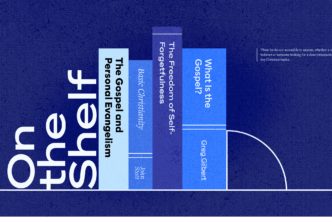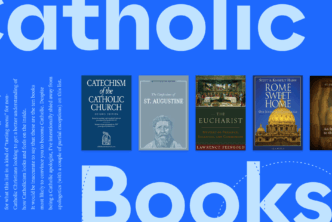With the 500th anniversary of the Reformation just two years away, Fortress Press has published the first two-volumes in their projected six-volume series The Annotated Luther. To get a closer look at this unique project, I interviewed series editor and leading Luther scholar Timothy J. Wengert.
1. Martin Luther remains one of the best known Reformers, but he also may be one of the least understood by many contemporary Christians. How does The Annotated Luther series make Luther and his ideas more accessible?
By dividing Luther’s chief works into separate categories, readers will have opportunities to explore different aspects of his thought: doctrine and faith; sacraments and church; pastoral ministry, the Christian in the world, and biblical interpretation. The first volume, by including many of the most important documents from Luther’s early career (1517–1520), explores how the Reformation in German-speaking lands began and what were the theological, social, and pastoral bases of Luther’s thought.
2. Luther’s thought was shaped both by his conflicts with Rome as well as in his ministry to his congregation. How does The Annotated Luther series connect the great Reformer’s ideas to his context and illuminate them so they are understood together?
These things (debate, polemics, ecclesiastical and political punishment) were only external causes for the ways Luther expressed himself. Luther himself was a pastor, preacher and teacher of the church. His concerns were far more focused on making sure his flock in Wittenberg (and, later, “his Germans” as he sometimes called them) heard and believed the gospel of God’s unconditional mercy. Thus, this series sheds light on how this second set of impulses interacted with an increasingly hostile reception among some church leaders and, at the same time, a deepening level of
support among others.
3. As a doctor of theology, Luther read widely in both theology and philosophy. But specific theologians and works had an enduring impact on him. Does The Annotated Luther series connect readers to these key influences?
By including useful annotations at every turn, this series seeks to adumbrate Luther’s thought in the light of both positive and negative influences from his theological predecessors and contemporaries. The result is a much richer view of Luther’s writing and a better sense of how he both stood within the church’s tradition and offered criticism on the basis of the gospel.
Order the first two volumes in The Annotated Luther series today.
4. How does this edition of Luther’s key writings help new students or lay people become acquainted with Luther’s theology?
By improving the introductions, annotations and translations of Luther’s chief writings, these volumes will grant the reader better access to Luther’s thought and to that of his opponents and supporters. Based upon the very latest scholarly research into history, theology, and language, interested readers will discover new insights into Luther’s thought and his importance for Christian history and thought on every page.
5. The series’ volumes seem to follow, in large degree, Luther’s own theological development. Is that intentional? How does it help readers understand Luther’s biggest ideas?
Luther’s thought continued to develop throughout his career, especially as he faced new challenges from old and new foes, from a new church situation and from the biblical texts that he sought to interpret. At the same time, particularly from 1518 on, there are certain recurring themes in his writings and theology, which this series also lays bare, even though the language may vary greatly: for example, the distinctions between law and gospel, between human and divine righteousness and between theologians of glory and theologians of the cross.
6. A lot could be said about why Martin Luther remains relevant in contemporary society. But in what way do you think Luther can be most helpful to us?
In one specific one way, Luther cannot help us. He is dead, and the cultural and theological struggles that we face are literally worlds apart from his own. Theologians and church leaders have often succumbed to the temptation to find a pithy quote from Luther to use against one’s own theological enemies. But precisely when we place Luther as closely as possible into his own time—as The Annotated Luther series does–will we discover enormous resources in his thought. Human beings still imagine
that they are gods, lording it over creation and their neighbor. Theologies of glory abound. Notions confusing the good news of God’s mercy with earthly prosperity and neglect of the truly poor threaten the church’s proclamation and mission at every turn. In this context, Luther’s clarion call to the church to preach and teach the gospel, to trust in crucified and risen savior and to serve the neighbor freely and spontaneously in all human callings deserves serious attention.
Timothy Wengert is a leading Lutheran scholar and prolific author. He is a pastor in the Evangelical Lutheran Church in America and is professor Emeritus at Lutheran Theological Seminary at Philadelphia. His published works include Reading the Bible with Martin Luther, Martin Luther’s Catechisms, Law & Gospel: Philip Melanchthon’s Debate with John Agricola of Eisleben over Peonitentia. He also co-edited 2000 edition of The Book of Concord with Robert Kolb.






